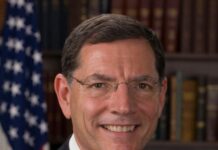Senator Charles Grassley comments:
Current plurilateral discussions on e-commerce and on fisheries show promise, and I fully support continuing those efforts.
Next, the WTO is responsible for implementing and monitoring trade agreements.
Finally, the institution serves as a forum for settling disputes amongst its members over the meaning and application of WTO agreements. As we approach the 25th year of operation for the WTO, it would be wise to acknowledge that the United States has overall been a beneficiary of the WTO dispute settlement process.
But we cannot overlook the serious challenges preventing the system from working as we intended it to. And we can probably all agree that updates and reforms would improve the effectiveness of the organization.
The Appellate Body, which soon could lose a minimum quorum needed to function, is in particular need of reform. The Administration’s concerns about systemic and procedural problems with the Appellate Body are not new, nor are they partisan.
Presidents on both sides of the aisle have raised concerns for many years. The United States first refused to consent to new Appellate Body appointments under the Obama administration, and the Trump administration has maintained the same position.
It’s unfortunate that this tactic is the only way the U.S. has been able to get serious attention from other WTO members. I’m not necessarily endorsing this approach, but now that we are here we can’t waste time lamenting the tactics. WTO members must take the United States seriously and commit to meaningfully addressing our concerns.
The areas of much needed reform are not limited just to dispute settlement. The Administration is right to point out that some WTO members consistently fail to meet their obligations to accurately notify the support they provide to domestic industries. That is simply unacceptable.
The WTO also needs to address the treatment of state owned enterprises or SOEs. SOEs are becoming more prevalent in the global economy. China is notorious for using SOEs to buy private companies around the world and has used SOEs as a conduit for subsidizing its industries.
The ability of WTO members to self-certify as a “developing country” is another problem for the organization’s long-term credibility.
When my constituents ask me why China, the world’s second largest economy, gets to self-certify as “developing,” I can’t explain it.
There are other countries, including OECD members that the Administration rightly points out have advanced economies, which still declare themselves developing countries.
But we cannot have a hearing on the WTO without talking about China. The fact of the matter is that China simply has not lived up to the commitments it made when it joined the WTO. This is detailed every year in USTR’s annual report on China’s WTO Compliance. And we have seen over the last decade or so that WTO rules have not effectively constrained China’s mercantilist policies and their distortion of global markets.
So, there is a lot of work to do. And we cannot do this alone.
The U.S., Japan, and European Union are discussing WTO reform options through a trilateral process that also seeks to address industrial subsidies and forced technology transfers.
Partnerships such as this one are critical to showing China that the United States is not the only country complaining.
The world certainly has come a long way on trade policy in the last century. I hope we learn from history and never repeat the protectionist mistakes of beggar-thy-neighbor policies like the infamous Smoot-Hawley tariffs. Yet, there are also many legitimate, bipartisan issues we must address with some of our trading partners and with the WTO.
To conclude, I probably do not need to remind many in this room of the following fact. The Constitution gives Congress the power to impose and collect taxes, tariffs, duties, and to regulate international commerce. As Chairman of this committee, I intend to assist President Trump and Ambassador Lighthizer with their efforts at the WTO and in seeking strong and enforceable trade deals. However, I do so with the understanding that erecting new market barriers with tariffs and quotas cannot be a long-term solution.
I’m looking forward to working in a bipartisan way with the members of this committee and the Trump Administration to ensure the United States has sound and constructive trade policy that benefits our country.
I now turn to the Ranking Member for his remarks.














